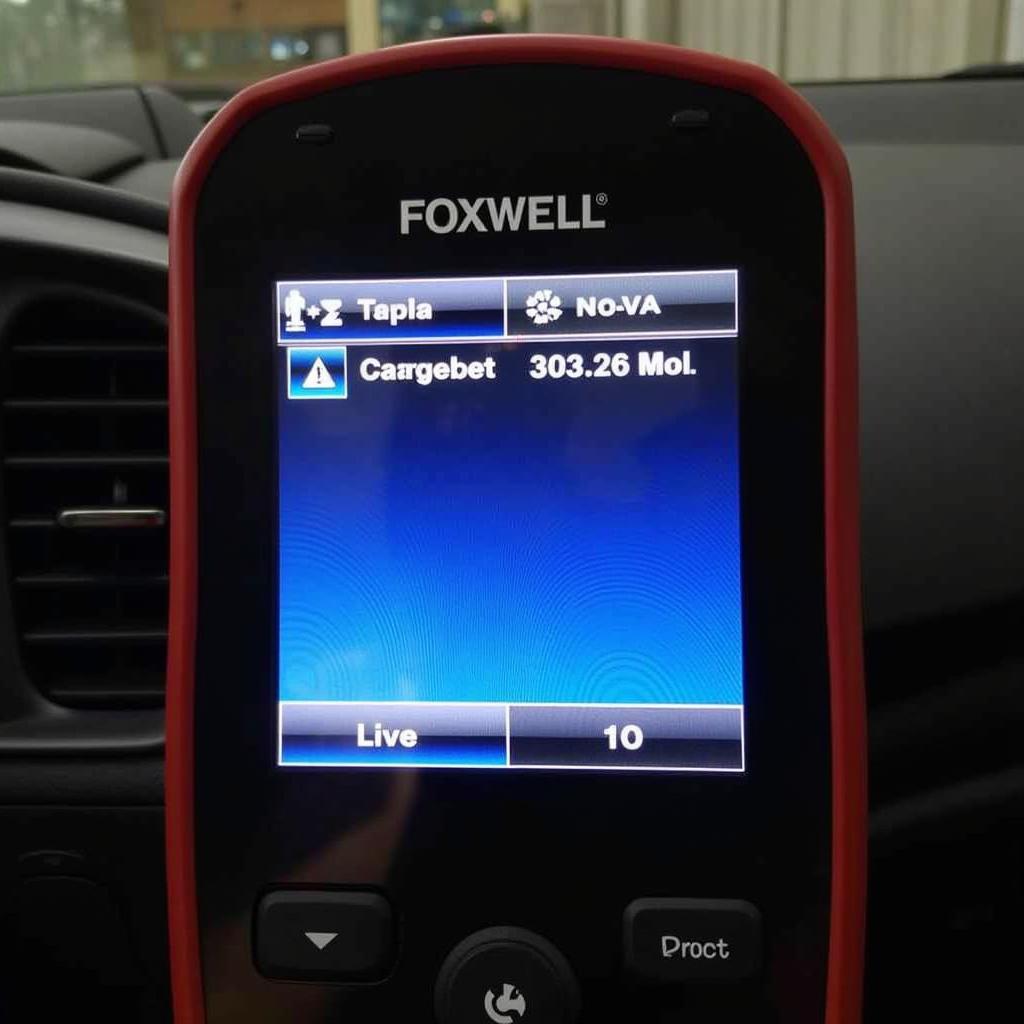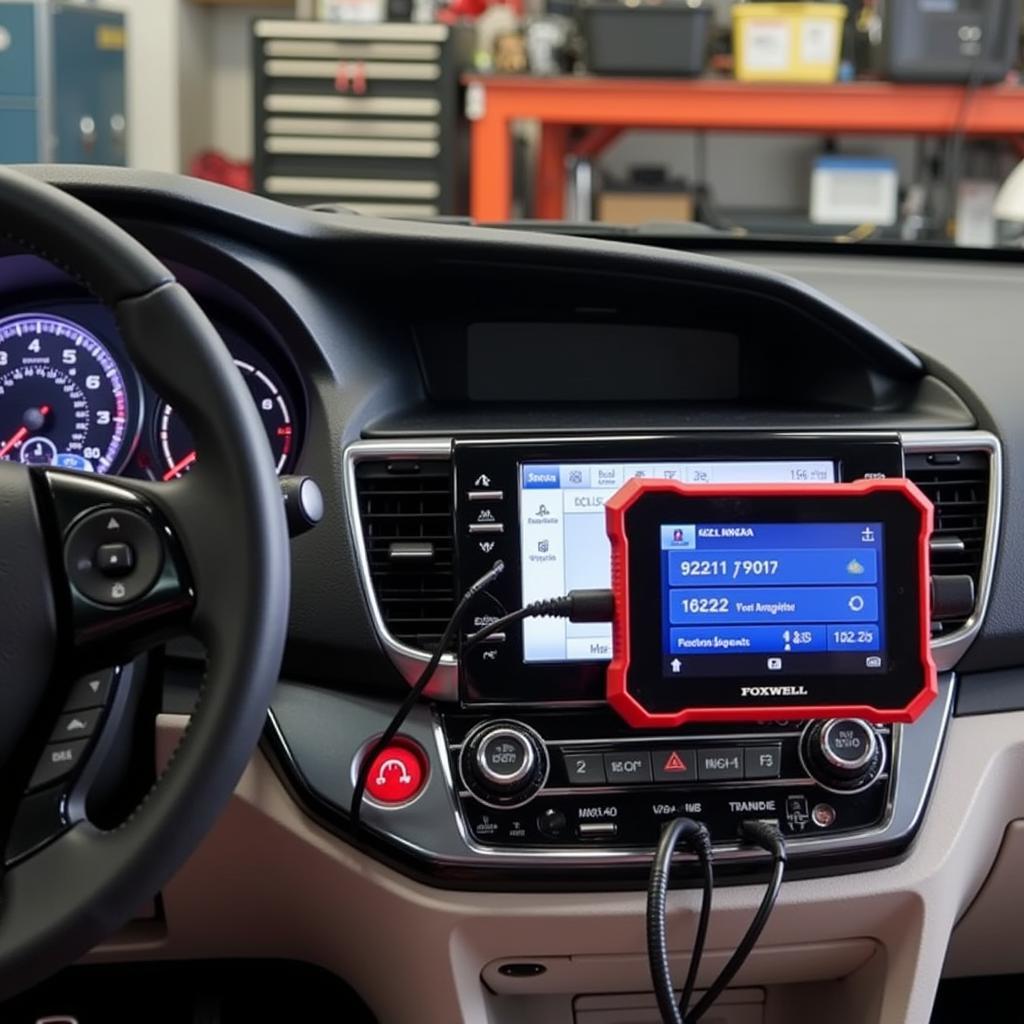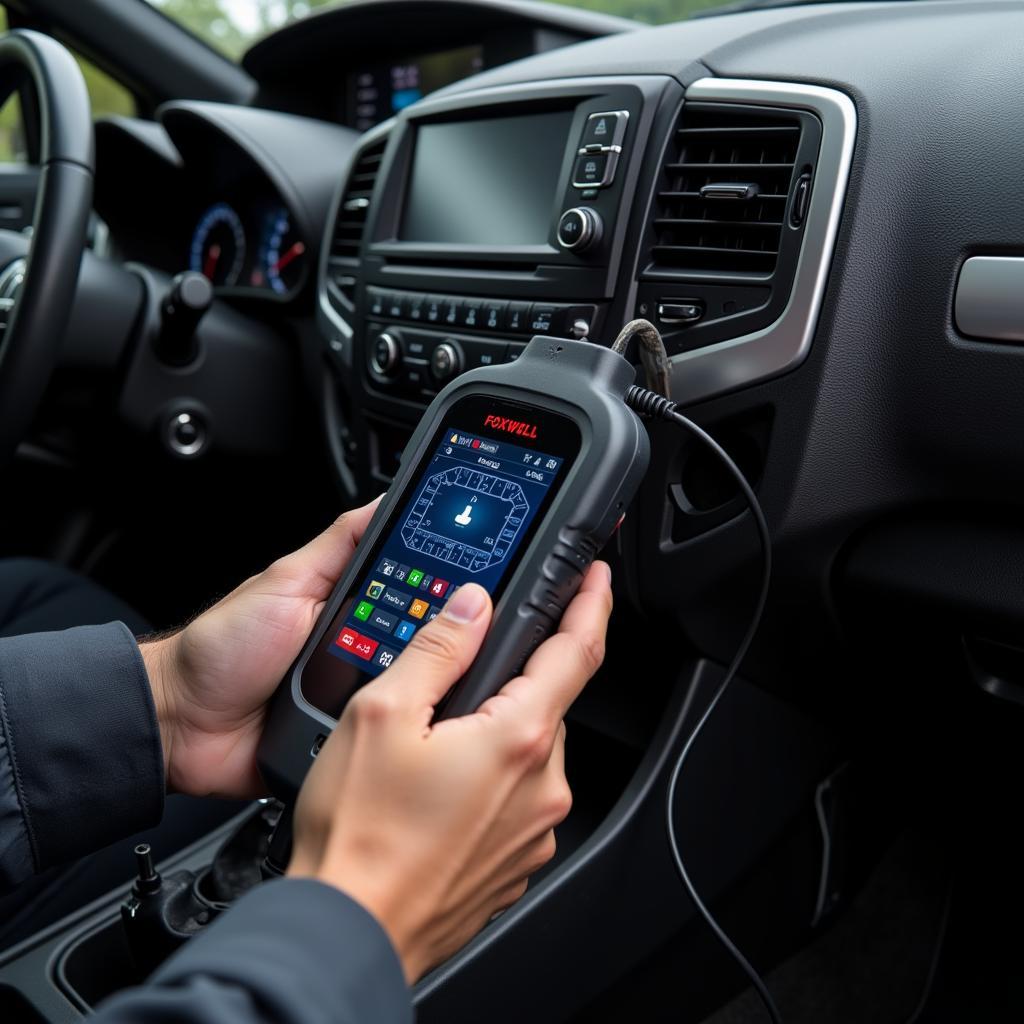The Foxwell NT301 is a popular OBD2 scanner known for its affordability and user-friendly interface. It’s a go-to tool for many car owners and DIY mechanics for diagnosing engine issues. One common question we hear is: “Can The Foxwell Nt301 Test The Alternator?” Let’s delve into this question and explore the capabilities of the Foxwell NT301 in alternator diagnostics.
Understanding the Foxwell NT301’s Capabilities
The Foxwell NT301 primarily reads and clears error codes from a vehicle’s Engine Control Unit (ECU). While it excels in this area, it’s essential to understand that it doesn’t directly test the alternator’s physical components like the voltage regulator or rectifier diodes.
However, the Foxwell NT301 can provide valuable insights into the alternator’s performance by displaying live data from the ECU. This data includes:
- Battery Voltage: This reading shows the battery’s current voltage. A healthy alternator should maintain a voltage between 13.5 and 14.5 volts when the engine is running.
- Charging System Voltage: This reading reflects the voltage being outputted by the alternator. It should be slightly higher than the battery voltage, indicating that the alternator is charging the battery.
 Foxwell NT301 Voltage Readings
Foxwell NT301 Voltage Readings
How to Check Your Alternator with the Foxwell NT301
While the Foxwell NT301 doesn’t directly test the alternator, you can use it to get an indication of its health. Here’s how:
- Connect the Foxwell NT301: Plug the scanner into your vehicle’s OBD2 port, usually located under the dashboard on the driver’s side.
- Turn on the ignition: Turn the key to the “on” position without starting the engine.
- Access live data: Navigate to the “Live Data” section on the Foxwell NT301.
- Select Battery Voltage: Find and select the “Battery Voltage” parameter. Note the reading.
- Start the engine: Start the engine and observe the battery voltage reading on the scanner.
Interpreting the Results:
- Voltage below 13.5V: A significantly low voltage reading even after the engine starts suggests the alternator is not charging the battery properly. This could indicate a failing alternator.
- Voltage fluctuating wildly: Significant fluctuations in the voltage readings point towards a problem with either the alternator’s voltage regulator or loose connections in the charging system.
- Voltage remains stable and within the normal range: This suggests the alternator is likely functioning correctly. However, further testing with a multimeter or a dedicated battery and charging system tester might be needed for a definitive diagnosis.
Limitations of Using the Foxwell NT301 for Alternator Testing
It’s crucial to acknowledge that the Foxwell NT301 should not be considered a replacement for a dedicated alternator tester. Here’s why:
- Indirect Testing: The Foxwell NT301 relies on data from the ECU, which may not always accurately reflect the alternator’s condition.
- Limited Diagnostic Depth: It can only provide basic voltage readings. It cannot test the alternator’s diodes, stator, or rotor, which are crucial components that can fail.
When to Seek Professional Help
If you suspect your alternator is failing or you’re experiencing charging system problems, it’s best to consult a qualified mechanic. They have the tools and expertise to diagnose and repair alternator issues accurately.
Conclusion
The Foxwell NT301 is a handy tool for car owners and DIYers, offering a budget-friendly way to monitor their vehicle’s health. While it can provide valuable insights into the alternator’s performance through voltage readings, it’s important to remember its limitations. For comprehensive alternator testing and diagnosis, it’s best to rely on a dedicated tester or consult a professional mechanic.
Need further assistance? Contact us at ScanToolUS at +1 (641) 206-8880 or visit our office at 1615 S Laramie Ave, Cicero, IL 60804, USA.



